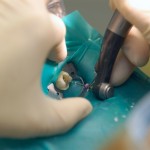
Cracked teeth a reported to be occur in up to 70% of dental patients. Diagnosis can be difficult as cracks may not be visible and symptoms variable. The crack, severity, location and symptoms influence treatment and outcomes with treatment ranging from composite resin restorations or crowns alone to root canal therapy followed by cuspal coverage if there is pulpal and periapical pathology or extractions
The aim of this review was to examine the treatment outcome of cracked teeth that received root canal treatment and to determine factors that influenced outcome.
Methods
Searches were conducted in the PubMed and Cochrane databases with additional searches of endodontic textbooks and journals. Two reviewers independently selected studies and appraised study quality using the Joanna Briggs Institute (JBI) Critical Appraisal Checklist for Cohort Studies.
Clinical studies evaluating outcomes in patients ≥ 18 years old with cracked teeth who received root canal treatment with at least 1 year in occlusal function were included. Data was extracted from individual studies. The primary outcome was the proportion teeth surviving between 0 and 60 months. Secondary outcomes were factors pre-operative factors influencing survival; gender, dental arch, type of tooth, crack direction, extension of crack, pre-treatment periodontal probing, terminal abutment, and initial pulpal diagnosis.
Results
- 4 retrospective cohort studies were included.
- Follow up periods ranged from 1- 5 years.
- 2 studies were published in the USA and 1 each in Singapore and South Korea.
- All 4 studies were considered to be of adequate quality.
- Pooled tooth survival rates were calculated using a random effects model.
| No of Studies | Survival rate (95%CI) | |
| 12 months | 4 | 93.4% (95%CI, 81.9–97.8%) |
| 24 months | 3 | 91.9% (95%CI, 80.4–96.9%) |
| 36 months | 3 | 90.4% (95%CI, 76.6–96.4%) |
| 48 months | 2 | 89.6% (95%CI, 33.0–99.3%) |
| 60 months | 1 | 96.3% (95%CI, 89.0–98.8%) |
| Overall | 4 | 84.1% (95%CI, 72.3–91.5%) |
- No factors were shown to significantly affect the survival rate of endodontically treated cracked teeth
Conclusions
The authors concluded: –
Within the limitations of this study, endodontically treated cracked teeth have an overall survival of 84.1% at 60 months. In view of the relatively high survival rate, endodontic treatment rather than extraction should be considered for cracked teeth. As there is a paucity of information relating to endodontic prognostic assessment, more prospective studies with larger sample sizes and longer follow-up durations are required to further evaluate the treatment outcomes of cracked teeth.
Comments
This interesting review has searched two major databases and a range of textbooks and Journals however there is a lack of detail on which of the Cochrane databases and endodontic journals and textbooks searched. As only English language studies were included there is the potential for relevant studies to have been exclude. Duplicate selection, screening and quality assessment of the studies has been carried out. However, all the included studies are retrospective cohorts of single group design, so the risk of selection bias is present. There is also a risk of missing data which may have implications in relation to the assessing factors affecting outcomes.
While the findings suggest good survival rates the limited number of studies and the small sample sizes mean that these findings should be viewed with caution. Further high quality well reported prospective studies with larger sample sizes using a common outcomes set would be helpful in clarifying survival rates and factors influencing them.
Links
Primary Paper
Leong DJX, de Souza NN, Sultana R, Yap AU. Outcomes of endodontically treated cracked teeth: a systematic review and meta-analysis. Clin Oral Investig. 2019 Dec 11. doi: 10.1007/s00784-019-03139-w. [Epub ahead of print] PubMed PMID:31797172.
Other references
Dental Elf – 8th Feb 2016
Vertical root fracture diagnosis with CBCT – insufficient evidence

Stainless steel crowns are fixed prosthetic restorations made to restore a damaged tooth to its original shape and size. They’re permanently cemented on teeth that have cracked, extensively decayed, or otherwise been damaged.